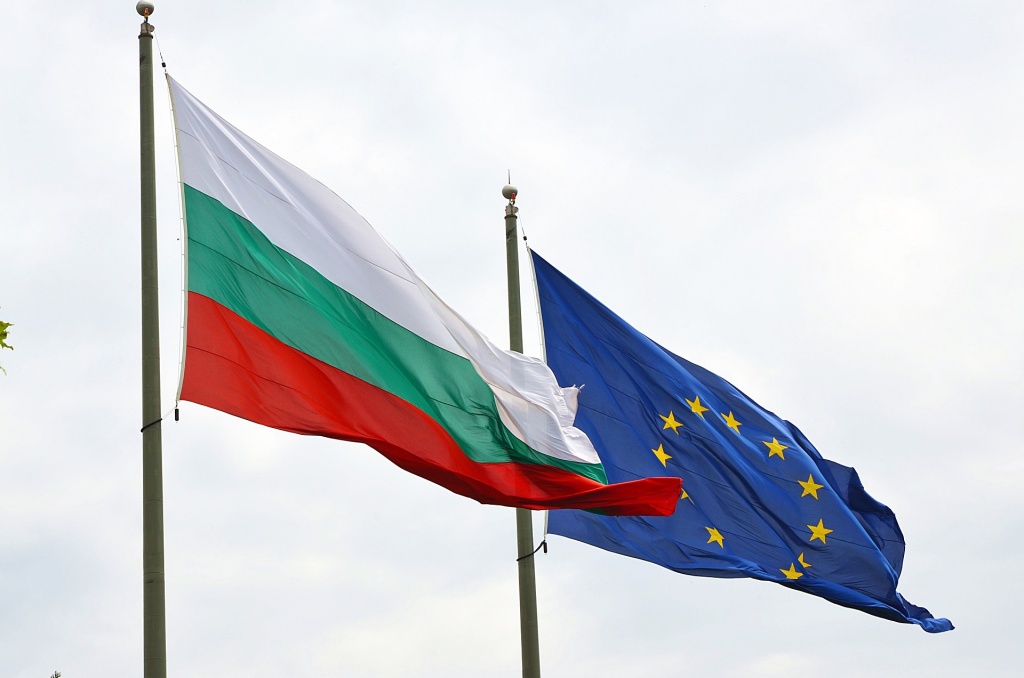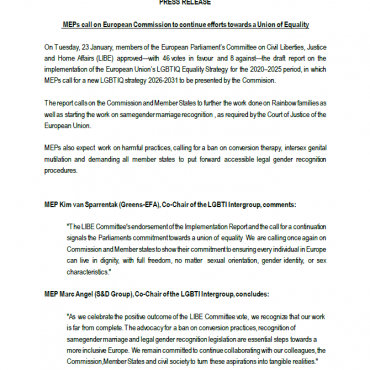Press release: Baby Sara case appeal at national level delivers another blow to rights of the child

Brussels, 09 March 2023
The Bulgarian Supreme Administrative Court ruled that Sara, a child of a same-sex couple, does not have the right to a Bulgarian birth certificate and citizenship.[1] The rejection by the Bulgarian SAC[2] comes after the 2021 decision by the Court of Justice of the EU (CJEU)[3], known as the ‘Baby Sara’ case, which ruled in favour of Sara’s right to freedom of movement and required Bulgarian authorities to issue identity documents. While the CJEU recognised Sara as an EU citizen, the rejection by the Bulgarian SAC to grant a birth certificate or citizenship severely limits Sara’s and the family’s free movement rights in the EU. The Bulgarian SAC based its verdict on the assumption that Bulgarian mother is not the biological mother, despite this never being established. The Bulgarian SAC also disputed earlier claims that Spain could not issue the requested documents, which shifts the responsibility to the Spanish authorities.
The negative ruling of the Bulgarian SAC demonstrates the urgent need for a strong EU regulation on the mutual recognition of parenthood[4] across Member States that will protect primarily the best interests of the child and their right to private and family life. The Spanish authorities have refused to grant Sara citizenship.
Pierre Karleskind MEP (Renew Europe), Vice-President of the LGBTI Intergroup and Shadow Rapporteur in the Legal Affairs Committee (JURI), comments:
The Baby Sara appeal case exposes the urgent need for robust EU regulation on mutual recognition of parenthood. The Bulgarian Supreme Administrative Court ruling relies on unverified biological assumptions rather than concrete evidence. With harmonized EU rules, the EU Certificate of Parenthood will grant legal security to countless families throughout the Union, eliminating the need for lengthy and complex legal battles.
Malin Bjork MEP (Left), Vice-President of the LGBTI Intergroup and Shadow Rapporteur for the Opinion of the Civil Liberties, Justice and Home Affairs Committee (LIBE), concludes:
The Bulgarian SAC ruling places hardship on the family as a whole. Sara continues to be stateless at 3 years old because of the Bulgarian Court’s decision to not grant citizenship. The decision of the Bulgarian SAC to shift the responsibility to the Spanish authorities increases the legal hurdles of the family and places Sara in a vulnerable situation. This one case is illustrative of the need for EU mutual recognition rules.
[1] Bulgarian Supreme Administrative Court, (1 March 2023), Appeal Nº 2185, accessible at https://info-adc.justice.bg/courts/portal/edis.nsf/e_act.xsp?id=2060937&code=vas.
[2] ILGA-Europe (2 March 2023), “Bulgarian’s Supreme Court rejects baby Sara’s Bulgarian Citizenship”, accessible at https://www.ilga-europe.org/news/bulgarias-supreme-court-rejects-baby-saras-bulgarian-citizenship/.
[3] CJEU (14 December 2021), Case C-490/20, “V.М.А. v Stolichna obshtina, rayon „Pancharevo”, accessible at https://curia.europa.eu/juris/liste.jsf?lgrec=fr&td=%3BALL&language=en&num=C-490/20&jur=C
[4] European Commission (7 December 2022), “Equality package: Commission proposes new rules for the recognition of parenthood between Member States”, accessible at https://ec.europa.eu/commission/presscorner/detail/en/ip_22_7509.
Press contacts:
Office of Pierre Karleskind – Victor Belaud (Victor.Belaud@europarl.europa.eu)
Office of Malin Björk – Charlotta Narvehed (Charlotta.Narvehed@europarl.europa.eu)






